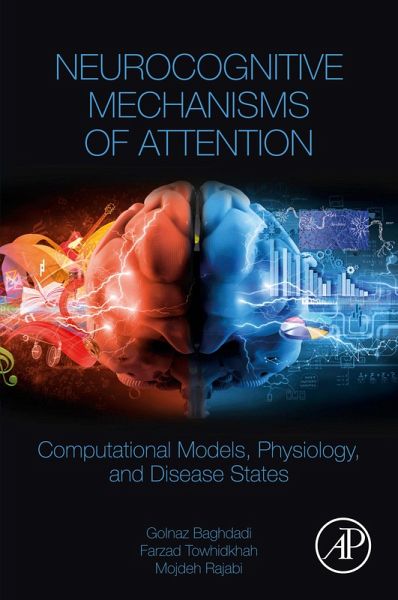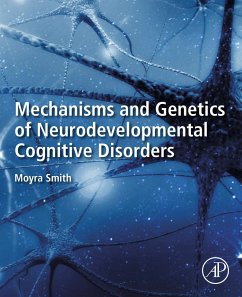
Neurocognitive Mechanisms of Attention (eBook, ePUB)
Computational Models, Physiology, and Disease States
Versandkostenfrei!
Sofort per Download lieferbar
95,95 €
inkl. MwSt.
Weitere Ausgaben:

PAYBACK Punkte
48 °P sammeln!
Neurocognitive Mechanisms of Attention: Computational Models, Physiology, and Disease States describes the brain mechanisms underlying the attention control system, how those mechanisms are examined, how they operate in different disease states, and methods for improving them. Conceptual models of attention further explore their functional operation. Coverage includes the different types of attention, processing paths, brain anatomy, and attention's role in memory and movement. Factors affecting attention are explored including nutrition, exercise, and genetics. Neurocognitive disorders impact...
Neurocognitive Mechanisms of Attention: Computational Models, Physiology, and Disease States describes the brain mechanisms underlying the attention control system, how those mechanisms are examined, how they operate in different disease states, and methods for improving them. Conceptual models of attention further explore their functional operation. Coverage includes the different types of attention, processing paths, brain anatomy, and attention's role in memory and movement. Factors affecting attention are explored including nutrition, exercise, and genetics. Neurocognitive disorders impacting attention are discussed including autism, ADHD, OCD, depression, anxiety, schizophrenia, Alzheimer's and Parkinson's Disease. Assessment methods and treatments are uniquely set against the backdrop of current conceptual, computational, and oscillatory-based models to encourage researchers to pursue continued development of new diagnostic and therapeutic tools. - Examines brain mechanisms underlying different types of attention - Explores how nutrition, exercise, genetics and more impact attention - Identifies impact on attention of neurocognitive diseases and disorders - Includes therapeutic advances to improve attention - Provides computational models via companion website
Dieser Download kann aus rechtlichen Gründen nur mit Rechnungsadresse in A, B, BG, CY, CZ, D, DK, EW, E, FIN, F, GR, HR, H, IRL, I, LT, L, LR, M, NL, PL, P, R, S, SLO, SK ausgeliefert werden.












